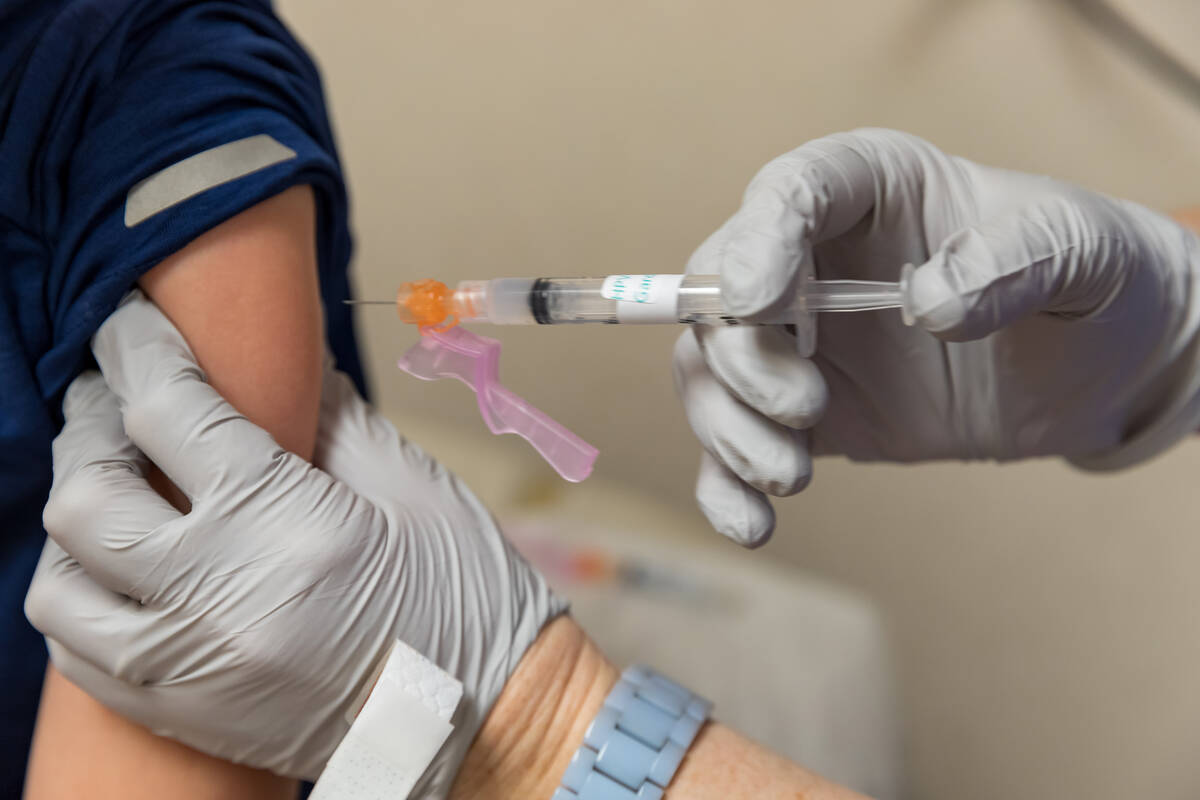Ask the Pediatrician: How do I protect my baby from a measles outbreak?
Measles is wildly contagious. Nearly one out of every three children under age 5 who catches measles ends up in the hospital.
Are some young children at a greater risk from the measles virus during an outbreak? What, if anything, can parents do to protect their little ones?
Make sure your child receives a vaccine to protect against measles as soon as they are eligible.
The recommended age for the first dose of measles, mumps and rubella (MMR) vaccine is 12 to 15 months old.
If you live in a community experiencing an outbreak, or if you travel internationally, your baby may be vaccinated as early as 6 months. Talk with your pediatrician if this applies to you.
Babies who get one dose of MMR vaccine before their first birthday should get two more doses (one dose at 12 through 15 months and another dose at least 28 days later).
The risk to a baby who is too young to get a vaccine depends on whether measles is circulating and the level of community immunity to measles. Unvaccinated people are at most risk for severe disease, especially children under age 5, and people who are immunocompromised, pregnant or severely malnourished.
Infants and children can be contagious four days before they even show any symptoms. Measles typically starts like a bad cold with symptoms such as fever, cough, runny nose and conjunctivitis (pinkeye). A rash then starts to develop on the head and spreads down to the rest of the body. Many children also get ear infections.
While the main symptoms of measles are bad enough, the reason we vaccinate against measles is to prevent the complications associated with it such as pneumonia and encephalitis, which is an infection of the brain.
In the United States, one to two out of every 1,000 children who get measles die from it. A similar number of children will have brain infection, and many go on to have long-term brain damage. The disease is even more severe in developing countries, where as many as one out of three children who get measles die from it.
The reason children don’t receive the vaccine any earlier is because the MMR vaccine is a live vaccine, which means it contains weakened forms of the viruses. In order to work, the weakened forms of the virus need to multiply to create an immune response.
Since the natural protection newborns get from their moms wears off gradually over a period of months, the viruses may not be able to multiply the way they would when the baby is a little older. That’s why we recommend the first dose of MMR vaccine starting at 12 months of age. Not because it’s dangerous, but because that’s the age at which the vaccine works best.
Most people of child-bearing age have been vaccinated against measles, mumps, and rubella, so they are protected against these diseases.
If a pregnant person was not previously vaccinated against measles, they cannot receive the MMR vaccine until after delivery. This is because the MMR vaccine is prepared with weakened live viruses, in contrast to many vaccines that are prepared with killed viruses. Doctors usually advise people to avoid getting pregnant for at least one month after receiving the vaccine to reduce the risk of becoming infected.
If a nonimmune pregnant person is exposed to measles, it may cause health problems to them and their unborn baby. In a Centers for Disease Control and Prevention study, the most common effect to the pregnant people was pneumonia, and the most common fetal/neonatal effect was premature delivery. If the pregnant person is exposed within 10 days of delivery, it is likely to cause a serious infection in their newborn.
Anyone born before 1957 is generally considered immune to measles. This means they are fully protected from measles for life and no additional vaccination is necessary.
The CDC also considers people who received two doses of measles vaccine as children protected for life. They do not ever need a booster dose.
If you’re unsure whether you’re immune to measles, you should first try to find your vaccination records or documentation of measles immunity. If you do not have written documentation of measles immunity, you should get the MMR vaccine. There is no harm in getting another dose of MMR vaccine if you may already be immune to measles or mumps or rubella.
Dr. Sean T. O’Leary is a pediatric infectious diseases expert at the University of Colorado School of Medicine and Children’s Hospital Colorado. He chairs the Committee on Infectious Diseases for the American Academy of Pediatrics.


















